Have you been looking for something new to watch after finishing the latest season of your favorite show? Then you may enjoy the recent Netflix series Kaos. With Jeff Goldblum in the lead role, this comedy puts a fresh twist on Greek mythology that is sure to keep you entertained.
Directed by Charlie Covell, the creative mind behind Channel 4’s cult hit The End of the F**king World, Kaos presents a modern vision of Mount Olympus. Goldblum stars as Zeus, the arrogant king of the gods, who faces turmoil as an ancient prophecy threatens to end his divine rule.
Accompanying him are a colorful pantheon of characters, from Janet McTeer’s powerful Hera to Aurora Perrineau’s independent mortal Riddy. Their intersecting stories unfold across contemporary Earth as well as in Olympus’ opulent palaces.
Though the plot incorporates heady themes, Covell ensures the tone remains lively throughout. Where some portrayals take mythology too seriously, Kaos finds humor in the foibles of both gods and humans alike. It’s in this lighthearted spirit that Goldblum excels, imbuing the paranoid Zeus with an aura of eccentric charm. Through his nuanced comedic performance, the actor provides an entertaining anchor for this strange yet compelling modern adaptation.
Prophecies, Passions and Protagonists
The plot of Kaos centers around Zeus and a disturbing prophecy that threatens his divine reign. As the arrogant king of the gods, Jeff Goldblum portrays Zeus with equal parts charm and insecurity. He rules over Mount Olympus alongside his sister-wife Hera, played regally by Janet McTeer. Meanwhile, down on Earth, several intriguing characters become entangled in the prophecy’s unfolding.
Chief among them is Riddy, an independent young woman brought to life by Aurora Perrineau. She finds herself caught between two worlds after a tragic accident. Riddy connects with others in similar straits, including Orpheus portrayed with heartfelt passion by Killian Scott. His devotion to bringing Riddy back from the Underworld drives much of the early story.
Of course, nothing happens amongst the gods without interference from their immortal enemy Prometheus, chillingly narrated by Stephen Dillane. As the chained prisoner of Zeus, he does all he can to hasten the prophecy’s fulfillment. Intertwined with Riddy and Orpheus’ journey, Prometheus’ recollections lend context and intrigue to each new revelation.
Throughout it all, Zeus grows increasingly fearful as hints of the prophecy materialize. A public disgrace in Crete leaves him disturbed, bringing old tensions with Prometheus to the boil. Janet McTeer stands as a calming presence beside Goldblum’s unraveling paranoid performance.
Between Olympus and Earth, the characters find themselves in a web of shifting allegiances and unexpected discoveries. Political intrigue, secret plots, and transforming identities emerge with absorbing drama. Yet through it all, the series balances dark themes with moments of wit, romance, and fascinating glimpses into this re-imagined mythical world. By weaving together such a variety of vivid protagonists in intricate and emotionally impactful ways, Kaos works magic in unraveling the mysteries of its prophecy.
Efficient Storytelling Amongst the Gods
Kaos tells an epic yet intricate tale spanning both earth and Olympus. Somehow, creator Charlie Covell manages to weave this multilayered narrative into a smoothly paced 8-episode season. Each segment feels complete on its own while still advancing the overarching plot.
Characters like Riddy and Orpheus have touching character arcs that evolve with patience. Their stories portray intimacy amongst the gods’ grander schemes. Meanwhile, Prometheus provides crucial narration that contextualizes each twist. Through his recollections, discreet clues are scattered for viewers piecing the prophecy’s puzzles.
Despite dipping into various realms and timelines, not a moment drags. Covell seamlessly shuttles between realms as the plots demand. Scenes on Crete conclude satisfactorily before the setting shifts effortlessly elsewhere.
Layered subplots involving intriguing figures like Ariadne or Dionysus could have muddled lesser hands. Yet under Covell’s stewardship, their contributions feel integral rather than tangential. Intricate details surface to later reverberate profoundly.
Throughout, the pacing remains taut and transportive. Darker themes emerge naturally amongst witty banter, ensuring levity and pathos feel appropriately balanced. Suspense percolates till the final scenes, leaving audiences eager to unravel Kaos’ remaining riddles.
Through deft handling of scope and structure, Covell weaves an epic yet binge-worthy treat. Within Kaos, intricate stories seamlessly intertwine through efficient and thoroughly engaging storytelling.
Laughter Amongst the Gods
One aspect that helps elevate Kaos above other mythology tales is its brilliant use of humor. Jeff Goldblum delivers an utterly hilarious Zeus, perfectly balancing the character’s grandeur and flaws. His unparalleled comedic timing shines through both the lord of gods’ conceited babble and frantic panic over looming prophecies.
Charlie Covell populates this modern Olympus with snap judgments and ironic mishaps guaranteed to bring smiles. Witty quips fly fast between royals, whether Hera scolding Zeus or Dionysus exposing his noble relatives’ vanity. Absurd affairs like Cerberus serving tea or Minotaur DJ’ing Crete’s parties show mythology doesn’t take itself too seriously.
Yet Covell ensures laughs never overshadow deeper themes. Weightier moments address eternal truths of love, mortality, and the corrupting allure of power. Even slapstick bits like Zeus transforming ball boys into bees retain thoughtful subtext. Through delicate blending, each episode balances chuckles with poignant reflections on the human condition.
Darker sequences likewise incorporate levity. In the grim Underworld, a newly arrived soul’s starstruck reaction to Medusa cuts through tension. And Prometheus’ sardonic narration offers ironic commentary on gods’ and humankind’s shared penchant for folly.
Through it all, Goldblum’s perfected comedic timing as Zeus ties narrative threads together. His masterful line deliveries and impish smirks imbue even chaotic scenes with cheeky charm. Kaos proves mythology can enlighten and entertain when placed in skilled absurdists’ storytelling hands.
Divine Domains Brought to Life
Kaos treated viewers to richly imagined divine domains. Mount Olympus felt a lavish palace befitting gods, with sweeping landscape shots establishing its grandeur. Set designers crafted palatial interiors conveying the royals’ pampered lives.
Equal attention went to lesser-seen realms. The Underworld particularly stands out—its black-and-white cinematography lends an eerie allure. Scenes aboard the river Styx carried an ominous air befitting the land of the dead.
Making mythology’s fantastic elements feel plausible, special effects played a part. CGI brought Cerberus and other mythical beasts to vivid life. Their realistic details made the impossible seem within reach of our world.
Subtle techniques also drew us deeper in. Spotlighting mounted Zeus’ wrath in shadowy palaces and enhanced tension. Darker hues blanketed the Underworld appropriately. Yet lighter tones lifted spirits elsewhere to offset heaviness.
While imaginative design transported viewers, naturalistic acting anchored fantastical stories. Performers inhabited elaborate surroundings with confidence, not camp. Their believable interactions with lavish backdrops strengthened immersion in Covell’s re-envisioned cosmos.
Through skillful production, Kaos actualized mythology. It rendered divine domains as places one might inadvertently find themselves, not mere backdrops. Audiences could easily picture unfolding epic events within the vivid worlds Kaos craftspeople constructed.
Myth and Meaning in Kaos
While presenting an entertaining fantasy, Kaos grounds divine tales in relatable struggles. The gods’ actions, like those of the wealthy today, reflect societal issues worth examining.
Zeus epitomizes how power corrupts the mightiest. As prophecies emerge, his arrogance and fear warp relationships. Paranoia and abuse stem from privilege unable to accept mortality. Perhaps we see reflections of leaders distant from realities facing masses.
Meanwhile, humankind finds common ground with mythic figures. Riddy, Orpheus, and others navigate messy dilemmas around love and loss and choices’ impacts. Whether godly or not, emotions like devotion, anger, and acceptance feel universal.
Covell ensures no character, godly or human, represents a sole perspective. With nuance, they showcase humanity’s light and shadows—as during all eras. And amid controversy over privilege, Kaos reminds us that even the powerful bear is invisible to outsiders.
Subtly, it acknowledges society progresses yet repeats; mistreatment of minorities and neglect of wisdom persist through times. But among darkness appear courage, empathy, and hope that transcend epochs. Perhaps herein lies mythology’s timeliest message—that through understanding each other, humanity can evolve.
Overall, Kaos marries ancient lessons with modern commentary gracefully. It views society’s follies through mythology’s lens yet finds our shared vulnerabilities more striking than divisions. In uniting entertainment with insight, the series engages minds as much as smiles.
A Divine Comedy Worth Returning To
Through imaginative storytelling and talented acting, Kaos works wonders at modernizing Greek myths. At the helm of it all stands Jeff Goldblum, breathing life into Zeus with equal measures of humor and pathos. Supported by a stellar ensemble, from Janet McTeer to Aurora Perrineau, each actor illuminates their complex character.
Weaving intricate personal arcs within its overarching prophecy, the series holds attention across eight hypnotic episodes. Laughter mingles with deeper ruminations on humanity, mirroring mythology’s original purpose. From bubbly Dionysus to desperate Prometheus, not a single figure feels superficial. Their humanity resonates regardless of divine traits.
Most remarkably, Kaos feels thoroughly researched yet approachable for newcomers. Covell extracts mythology’s essence and implants it fruitfully into the present. Through visual splendor and witty lines, the world of gods establishes itself as a place viewers desire to spend more time.
With its compelling narrative and thought-provoking themes left unfinished, Kaos has certainly earned another season. Netflix would do well renewing this modern classic, allowing Goldblum and company to further shine in unfolding their unique vision. For believers in superb storytelling, Kaos stands for divine entertainment worth your worship.
The Review
Kaos
Charlie Covell's reimagining of Greek mythology through Kaos proves an enchanting television experience. With Jeff Goldblum leading an impressive ensemble, the series bursts with humor and intellectual provocation. Although introducing many complex threads, Covell weaves them into a seamless modern epic. Both binge-worthy and rich in rewatch value, Kaos transports audiences to an immersive world of gods and humans. It succeeds triumphantly in bringing new life to ancient tales while commenting on enduring human truths.
PROS
- Imaginative reinterpretation of mythology blending drama, comedy, and social commentary
- Stellar performances from Jeff Goldblum and ensemble cast
- Visually stunning production design bringing mythical realms to life
- Intricately plotted season with satisfying character arcs and twists
CONS
- Dense mythology elements may confuse those unfamiliar with source material.
- Complex interweaving of storylines risks losing some viewers.
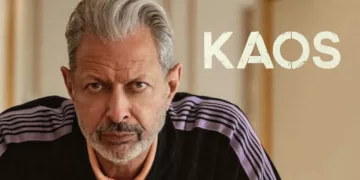








































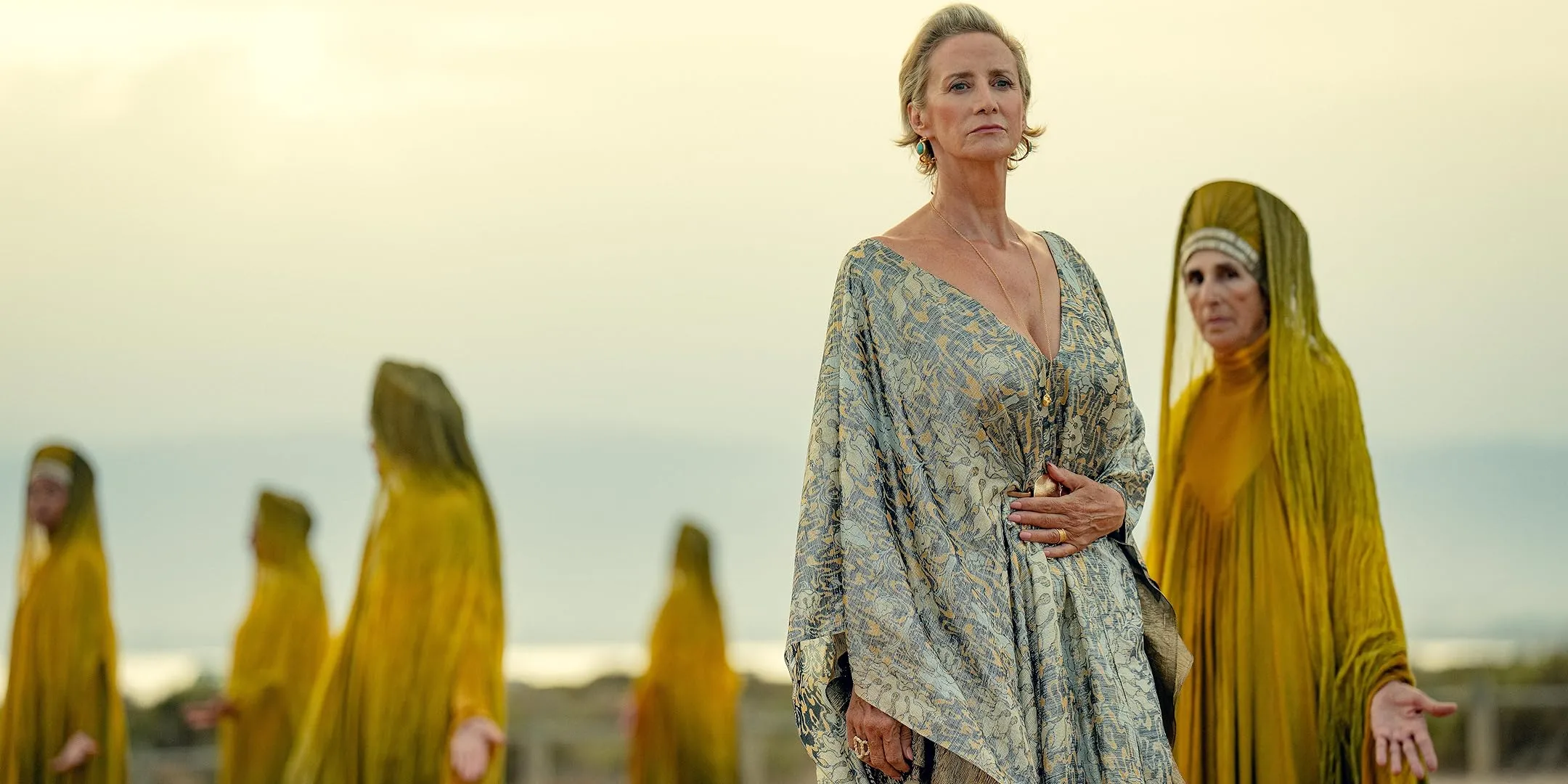
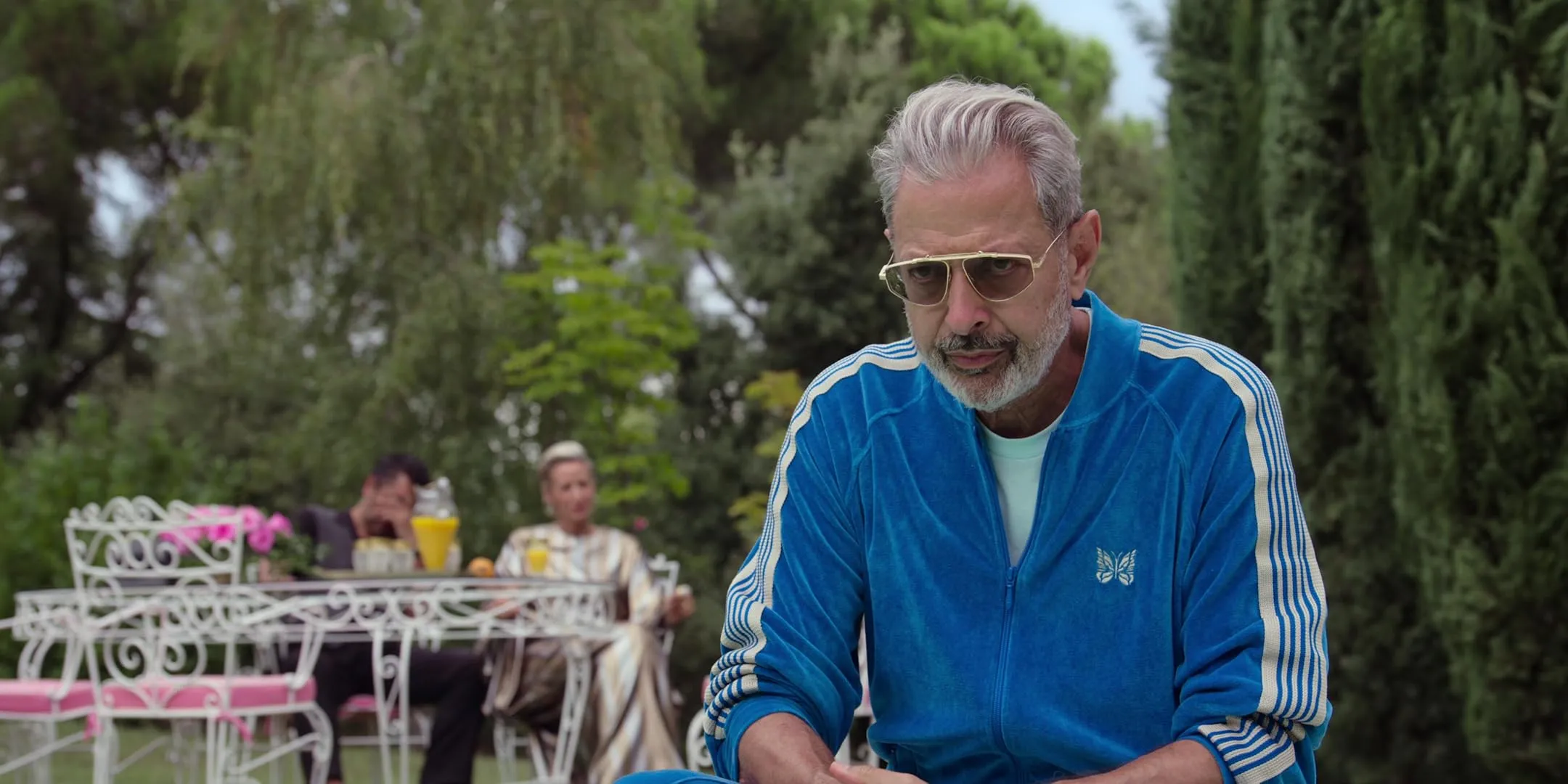
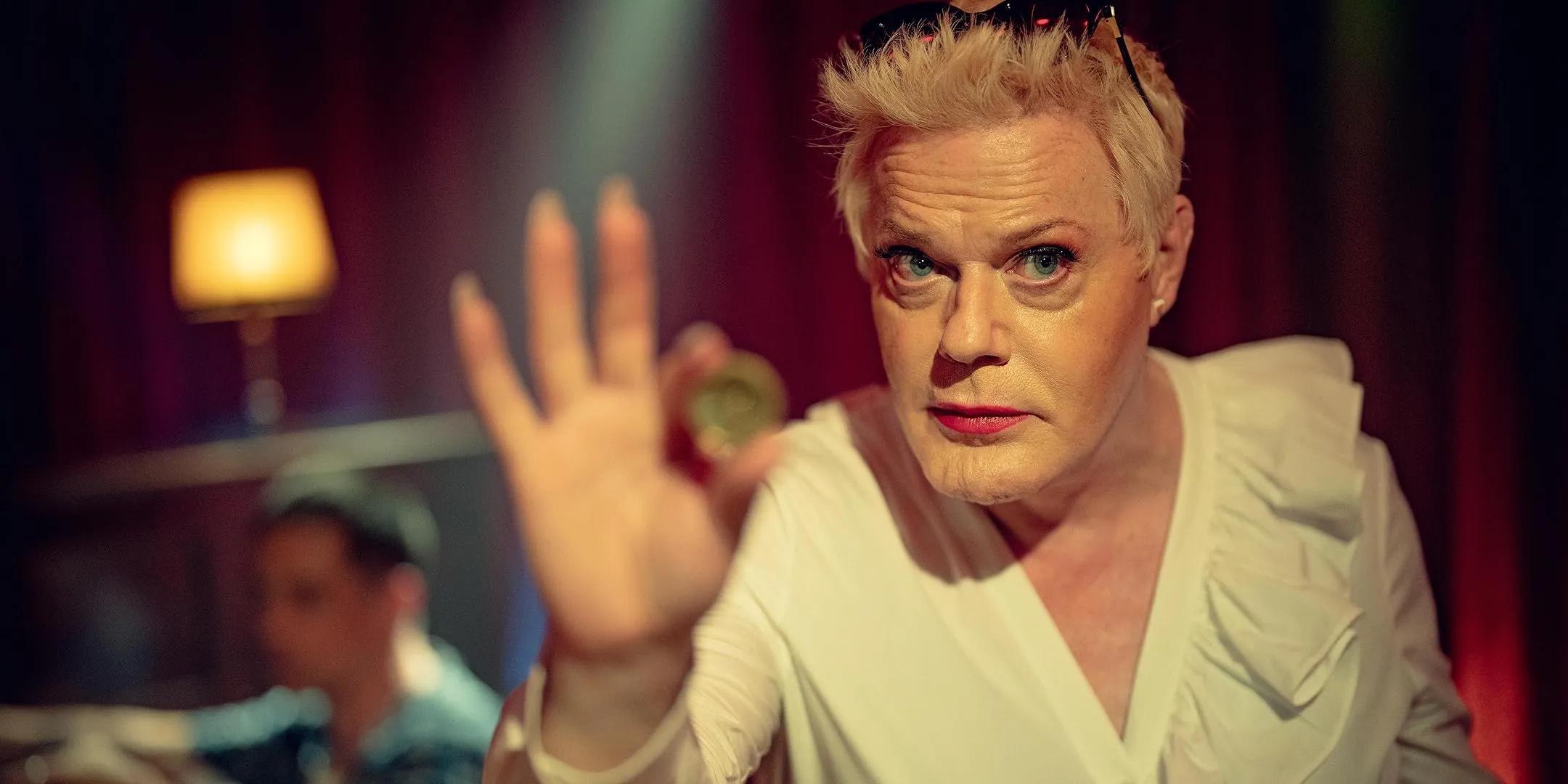

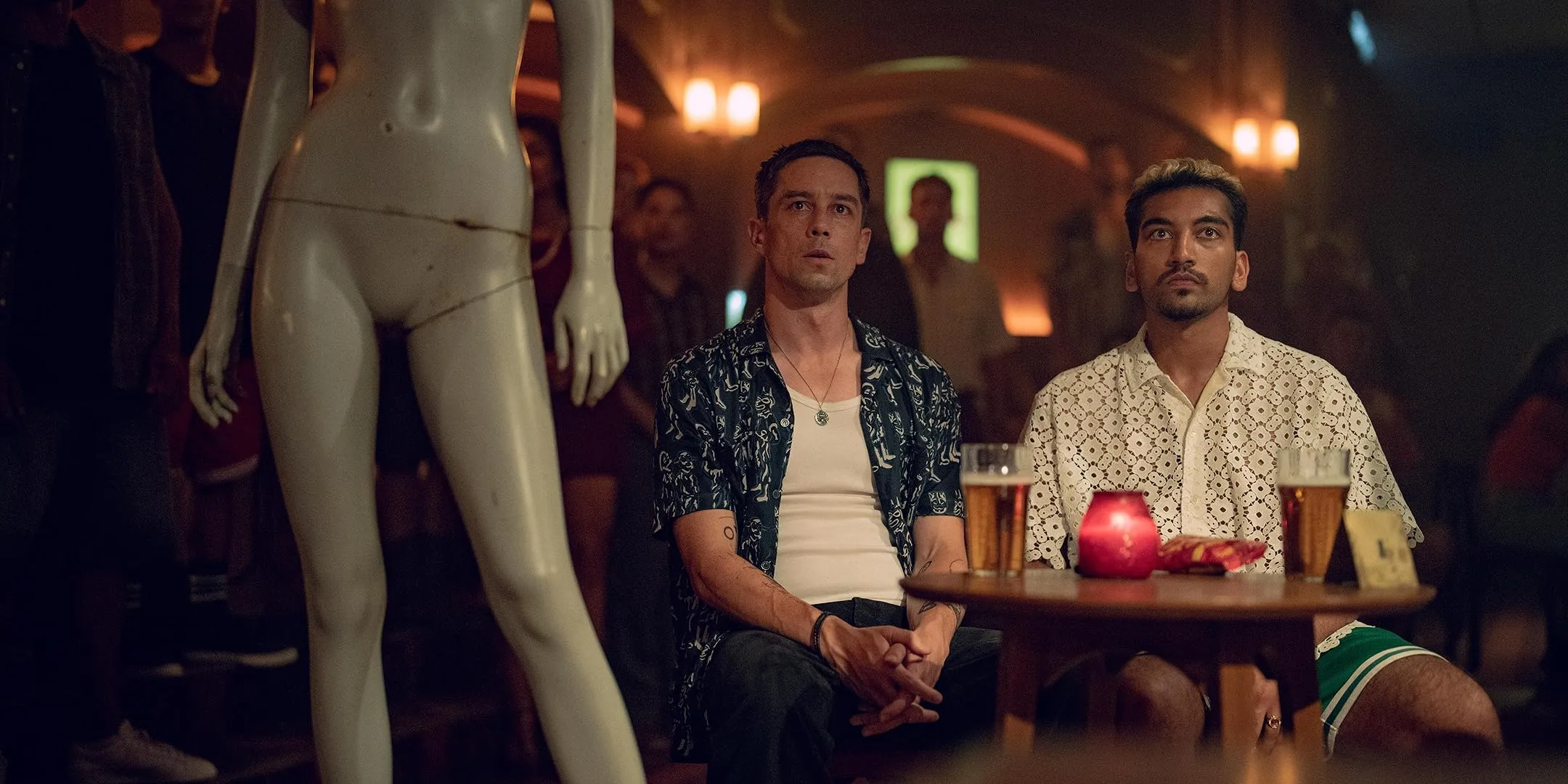








Discussion about this post